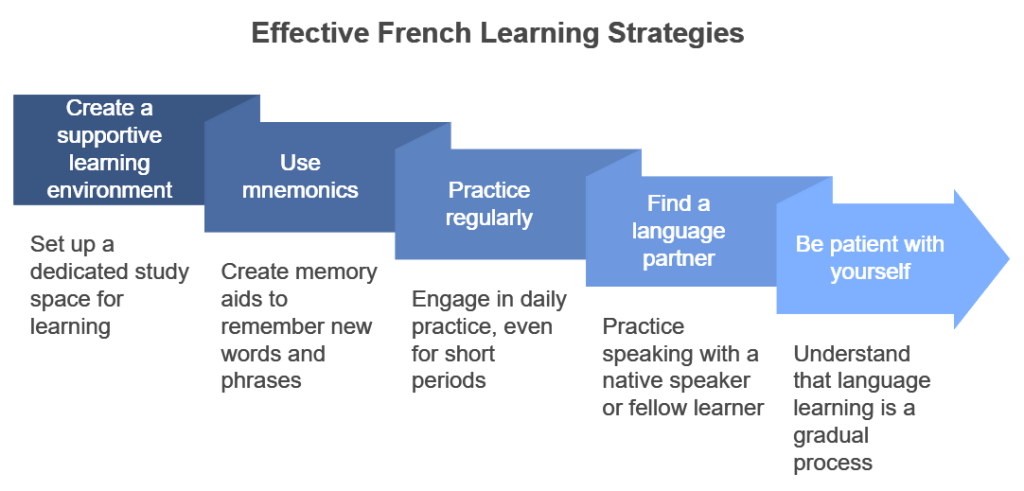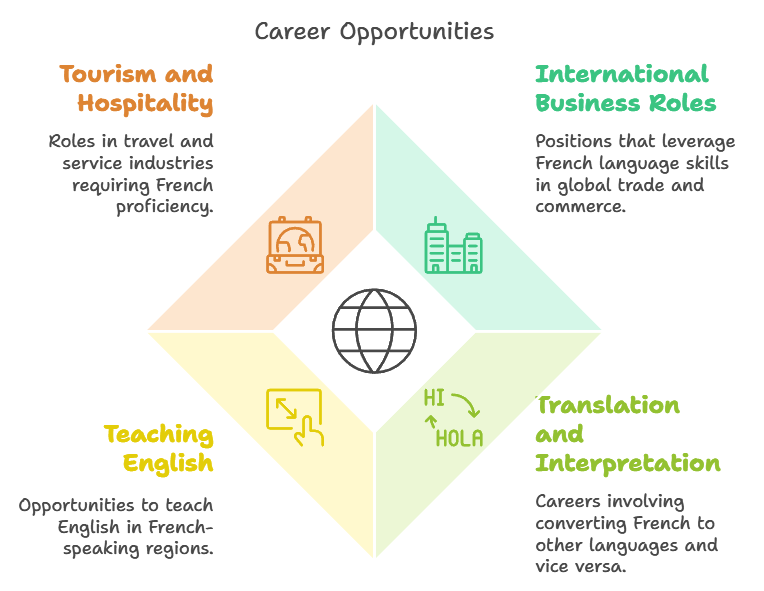Can You Learn French at 50?
Yes, you absolutely can learn French at 50! Age is not a barrier to learning a new language. In fact, being 50 can give you some unique advantages in your French learning journey. Let’s explore why it’s never too late to start learning French and how you can make the most of your language learning experience.
Key Takeaways:
- Learning French at 50 is not only possible but can be highly rewarding
- Adult learners have unique advantages like life experience and clear motivation
- Consistent practice and the right learning strategies are key to success
- Learning French can have cognitive, personal, and professional benefits at any age
- It’s important to set realistic expectations and celebrate small victories
Introduction
Have you ever thought, “I wish I had learned French when I was younger”? Well, it’s time to put those regrets aside! Learning French at 50 is not only possible but can be an exciting and fulfilling experience. Let’s dive into why age is just a number when it comes to language learning and how you can successfully learn French in your 50s.
Advantages of Learning French at 50
Life Experience and Cognitive Maturity
At 50, you have a wealth of life experience that can actually help you learn French faster. Here’s how:
- Better understanding of language structures: You already know how languages work from your experience with English.
- Richer vocabulary: Your extensive English vocabulary can help you make connections with French words.
- Cultural awareness: Your life experiences make it easier to understand and appreciate French culture.
Clear Motivation and Goals
Unlike children who often learn languages because they have to, you’re choosing to learn French. This intrinsic motivation can be a powerful driving force:
- You have specific reasons for learning French (travel, work, personal growth)
- You’re more likely to stick with it when challenges arise
- You can see the long-term benefits of your efforts
Challenges and How to Overcome Them
While there are many advantages, it’s important to be aware of potential challenges:
Time Constraints
At 50, you likely have many responsibilities competing for your time. But don’t worry! With good planning, you can find time for French:
- Tip: Start with just 15-30 minutes of French practice daily. Consistency is key!
- Use “dead time” (like commuting or waiting in line) for quick French lessons
Reduced Neuroplasticity
While our brains can learn at any age, it’s true that neuroplasticity (the brain’s ability to form new connections) decreases as we get older. But here’s the good news:
- Regular language learning can actually increase neuroplasticity
- The more you practice, the easier it becomes to learn new things
Potential Self-Doubt and Anxiety
It’s normal to feel nervous about learning a new skill at 50. But remember:
- Everyone makes mistakes when learning a language, regardless of age
- Your life experience gives you confidence in other areas – apply this to language learning too!
Effective Learning Strategies for Adults
Now that we’ve covered the pros and cons, let’s look at some strategies to help you succeed in learning French at 50:
Immersion Techniques
Surround yourself with French as much as possible:
- Watch French movies and TV shows (start with subtitles)
- Listen to French music and podcasts
- Read French books, newspapers, or blogs
Leveraging Technology and Apps
Take advantage of the many language learning tools available:
| App | Best For |
|---|---|
| Duolingo | Daily practice and gamified learning |
| Babbel | Structured lessons and speech recognition |
| Anki | Spaced repetition for vocabulary |
Structured Learning Programs
Consider enrolling in a structured French course:
- Online courses offer flexibility for busy schedules
- Local community colleges often have adult language classes
- Private tutoring can provide personalized instruction
The Role of Motivation
Staying motivated is crucial for success in learning French at 50. Here are some tips:
- Set realistic goals: Start small and celebrate your progress
- Find personal connections: Explore French culture, cuisine, or history that interests you
- Visualize success: Imagine yourself speaking French fluently in Paris!
Cognitive Benefits of Learning French Later in Life
Did you know that learning French at 50 can be great for your brain? Here’s how:
- Improved memory: Language learning exercises your memory “muscles”
- Enhanced problem-solving skills: Figuring out grammar rules boosts cognitive flexibility
- Delayed cognitive decline: Bilingualism may help protect against age-related cognitive issues
Practical Tips for Learning French at 50
Ready to start your French journey? Here are some practical tips:
- Create a supportive learning environment: Set up a dedicated study space
- Use mnemonics: Create memory aids to remember new words and phrases
- Practice regularly: Even 15 minutes a day can make a big difference
- Find a language partner: Practice speaking with a native French speaker or fellow learner
- Be patient with yourself: Remember, learning a language is a marathon, not a sprint

Overcoming Age-Related Challenges
As we age, we might face some specific challenges in language learning. Here’s how to tackle them:
- Hearing changes: If you’re experiencing any hearing loss, consider using headphones or increasing volume when listening to French audio
- Vision changes: Use larger text or adjust screen brightness when reading French materials
- Slower processing speed: Give yourself extra time to absorb new information and don’t rush through lessons
Success Stories
Need some inspiration? Here are a few examples of people who successfully learned French after 50:
- Marie, 55, learned French to connect with her husband’s family
- John, 62, picked up French for a job opportunity in Quebec
- Sarah, 58, learned French to fulfill her dream of living in Paris
What’s your French learning story going to be? 😊
Cultural Adaptation and French Learning
Learning French isn’t just about the language – it’s also about understanding French culture. This can be especially rewarding for learners in their 50s who have a wealth of life experience to draw from. Here are some ways to enhance your cultural understanding:
- Cook French recipes and learn food-related vocabulary
- Explore French art and literature
- Follow French news and current events
Career Impact of Learning French at 50
Learning French can open up new career opportunities, even later in life. Consider these possibilities:
- International business roles
- Translation and interpretation work
- Teaching English in French-speaking countries
- Tourism and hospitality industries

Realistic Expectations and Learning Curve
It’s important to set realistic expectations for your French learning journey. Here’s what you might expect:
- First 3 months: Basic greetings and simple conversations
- 6 months to 1 year: Ability to have longer conversations on familiar topics
- 1-2 years: Increased fluency and comfort with more complex topics
Remember, everyone’s journey is different. Focus on your progress, not perfection!
Conclusion
Learning French at 50 is not only possible but can be an incredibly rewarding experience. Your life experience, clear motivation, and established learning habits give you unique advantages. While there may be challenges, with the right strategies and mindset, you can absolutely succeed in learning French.
Remember, language learning is a journey. Enjoy the process, celebrate your progress, and don’t be afraid to make mistakes. Your 50s could be the perfect time to embark on this exciting French adventure. Bonne chance! (Good luck!)
